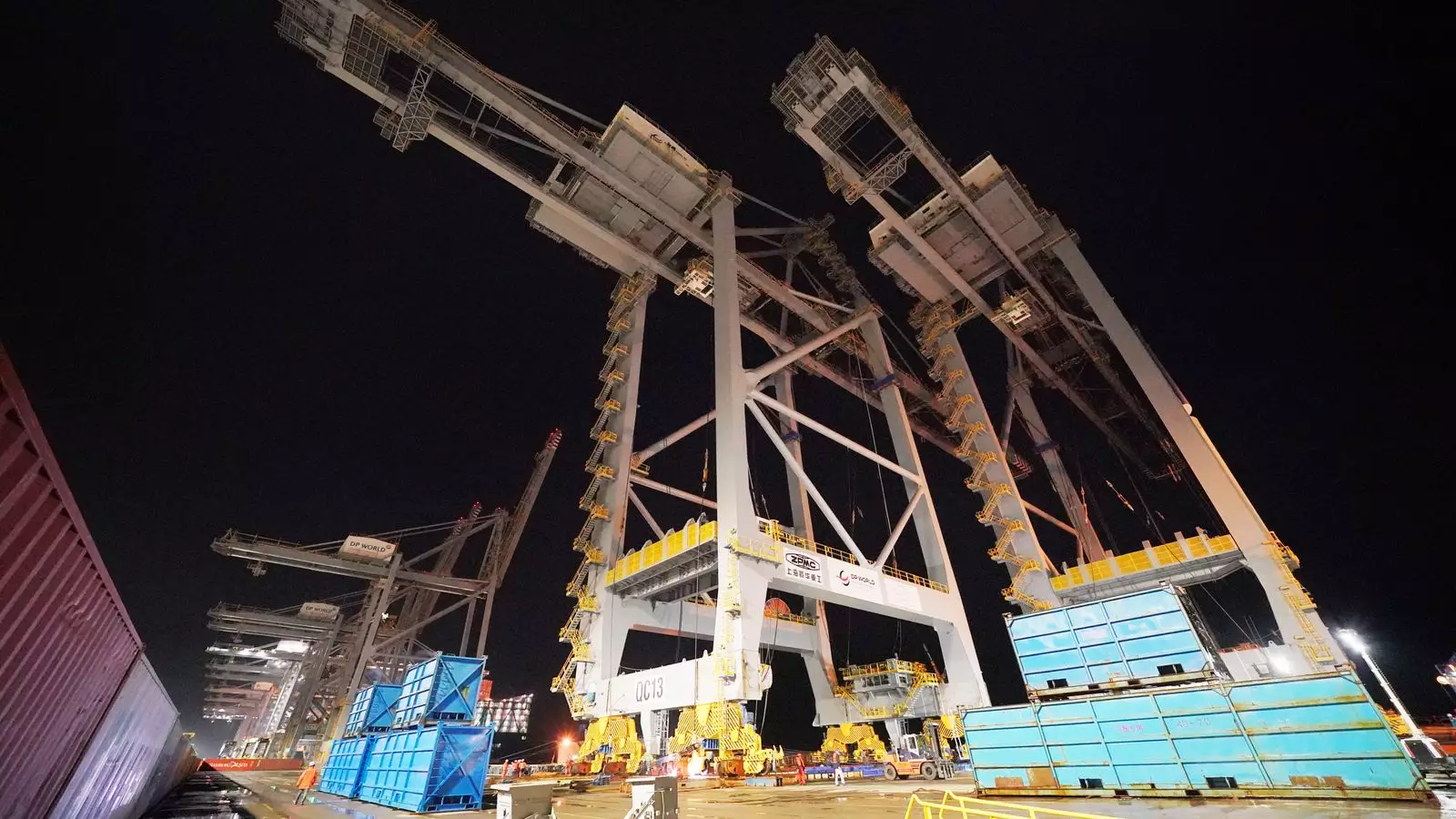In a recent episode on “Sunday Morning With Trevor Phillips,” Business and Trade Secretary Jonathan Reynolds revealed just how delicate the landscape of international investment can be. The topic of discussion was the looming £1 billion investment commitment from DP World for the London Gateway port. However, a storm brewed in the background after Transport Secretary Louise Haigh characterized the company as a “rogue operator,” igniting fears that the investment could fall through. This situation serves as a stark reminder of how political discourse can dramatically influence economic decisions in an interconnected world.
Haigh’s comments stem from a controversial incident involving P&O Ferries – a subsidiary of DP World – which last year controversially dismissed 800 British seafarers in favor of cheaper foreign labor. This significant workforce change was presented by the company as a necessary step to ensure its survival; however, public outrage erupted in its wake. The timing of Haigh’s remarks raised eyebrows, particularly since the DP World investment was expected to be a central feature in the upcoming investment summit. Reynolds’ admission that the government needed to have a “conversation” following the transport secretary’s statement signifies a recognition that such remarks have real-world consequences, shaking the foundations of investor confidence.
DP World’s Response: Walking a Tightrope
DP World’s spokesperson confirmed that constructive discussions took place with the government before the investment was deemed secure. The phrase “constructive and positive discussions” carries weight in this context, suggesting that both parties understood the stakes. As foreign investment becomes critical in maintaining economic growth, a united front is essential for the UK government, particularly when confronting global players like DP World.
This incident illustrates a larger issue at hand: a need for cohesive messaging from government officials who influence public perception and investment climates. While Haigh may have intended to represent the interests of affected workers, the consequences of her words suggest a disconnect in understanding the broader impacts of such rhetoric on international relations and economic commitments.
The timing of the investment summit is particularly noteworthy, falling just before a crucial budget announcement on October 30. When Labour was in opposition, they committed to holding this event within their first 100 days if they were elected. The government’s accelerated timeline for the summit indicates a heightened urgency to galvanize investment for the UK, especially following a turbulent economic period exacerbated by numerous global events.
Reynolds faced further scrutiny regarding why high-profile figures such as Elon Musk would not attend the investment summit. His evasion might suggest that attracting the world’s wealthiest individuals to such events is more nuanced and complex than merely sending out invitations. Nonetheless, by emphasizing the need for participants who can significantly impact investment, Reynolds may have inadvertently downplayed the allure and prestige that Musk’s presence could have brought to the summit.
Navigating the tightrope of ensuring confidence from investors while simultaneously addressing domestic labor concerns presents the UK government with long-standing challenges. As they balance between foreign investments and local workforce sentiments, it is imperative that they communicate clearly and work collaboratively with stakeholders from both sides. Upcoming events like the International Investment Summit not only serve as platforms for potential investments but also reflect the values and priorities that the UK seeks to project to the world.
This case of DP World serves as a useful lens through which to examine the intricate relationship between politics and business, particularly in a global environment where perception can significantly shape reality. As the UK faces growing challenges in economic recovery and workforce stability, fostering a cooperative atmosphere that reassures investors while still fighting for workers’ rights is critical. The stakes are high, not just for the government but for the economy as a whole, making careful consideration of language and strategy imperative to secure a prosperous future.


Leave a Reply